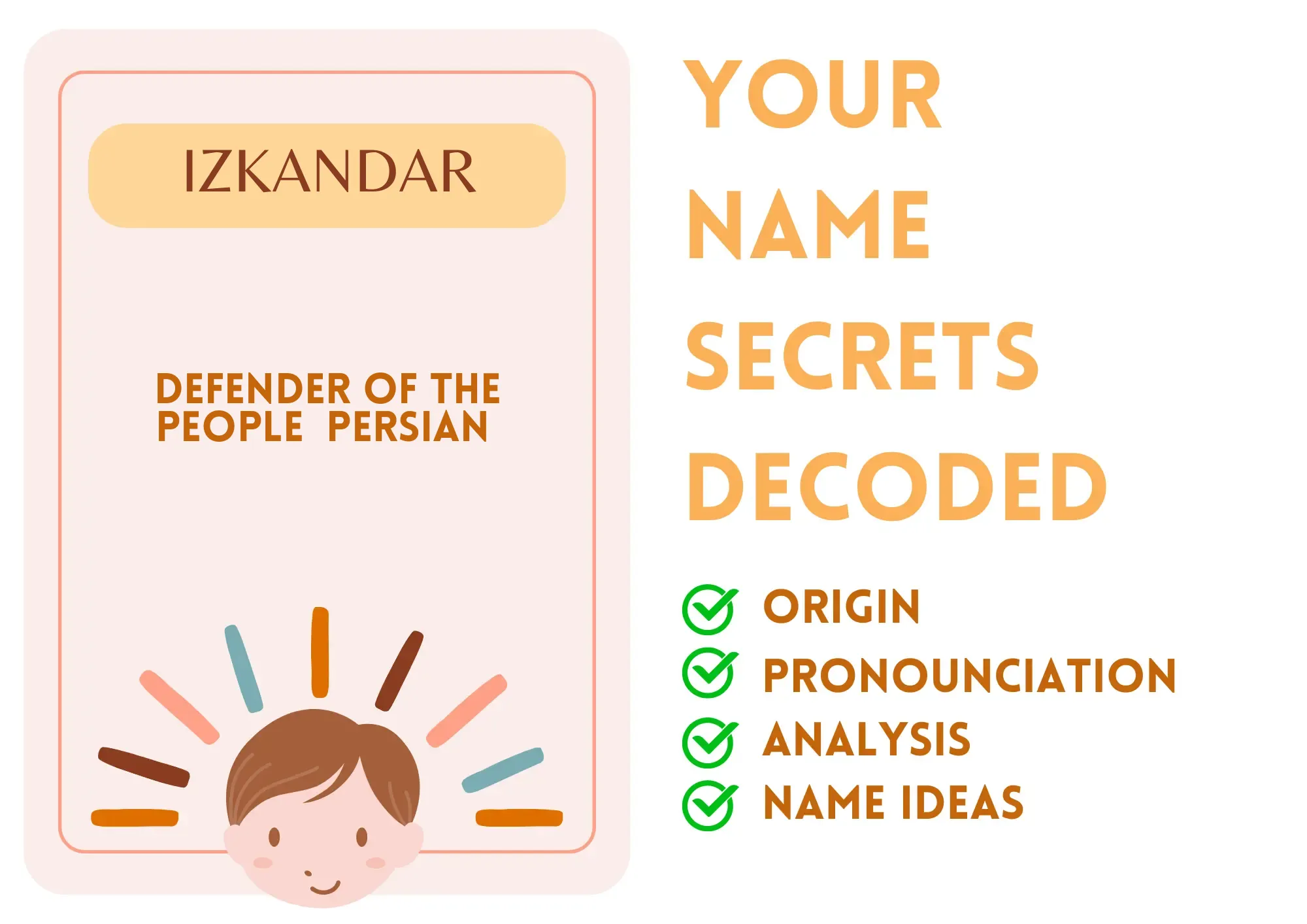
Izkandar
Izkandar is a distinguished name with rich historical and cultural significance, derived from the Persian variant of Alexander, which means 'defender of the people.' It is predominantly used in Islamic cultures and among Middle Eastern and Central Asian communities. While traditionally a male name, it carries a certain strength and valor that might attract broader usage.
Izkandar has roots deeply embedded in both the Islamic tradition and ancient history, being linked to Alexander the Great, a prominent figure known for his military conquests and cultural influence. The name evokes qualities of leadership, courage, and wisdom.
In contemporary society, Izkandar is appreciated for its uniqueness and the powerful imagery associated with its historical background. It is easy to write and pronounce, often leading to surnames or variations like Zandar or Kandar.
Basic Information
Gender: Boy
Sounds Like: iz-KAN-dar
Pronunciation Explanation: The emphasis is on the second syllable 'KAN', with a slightly softer 'I' and 'dar' at the end.
Summary and Meaning
Meaning: defender of the people (Persian)
Origin: The name Izkandar has Persian origins, stemming from the name Alexander, which is significant in various cultures, especially Islamic ones.
Usage: Izkandar is traditionally a masculine name, reflecting strength and leadership.
Name Number (Chaldean)
Name Number (Pythagorean)
Popularity (Global Rank)
Overall: 397385
Boys: 45944
Most Popular in
Religious and Cultural Significance
Religion: Islam
Background: In Islamic culture, Izkandar is viewed as a noble name, carrying historical weight through its association with Alexander the Great who is often seen as a great conqueror and leader.
Cultural Significance: Izkandar holds importance in Persian literature and history, symbolizing courage, leadership, and cultural fusion.
Historical Significance: The name Izkandar ties back to Alexander the Great, whose legacy has extended through numerous cultures and periods, impacting leadership ideals and military strategy.
Popular Culture
Literature and Mythology: Izkandar is often referenced in Persian epic poetry and folklore, highlighting bravery and wisdom.
Movies and Television: While not as commonly seen in mainstream media, characters or references may appear in historical films or series related to Alexander the Great.
Feelings and Perceptions
Perception: Izkandar is generally perceived positively, connoting strength, leadership, and cultural richness. It is appreciated for its unique sound and historical resonance.
Positive Feelings: Strong, distinguished, historic, regal, noble.
Negative Feelings: Some may find it unfamiliar or difficult to pronounce initially.
Practical Considerations
Ease of Writing and Calling: Izkandar is relatively straightforward to write and pronounce, consisting of three syllables and spelt phonetically, making it memorable and easy to call.
Common Typos and Misspellings: Iskandar,Izkanar,Izkander,Iskandar
Common Nicknames: Izzy,Zan,Kando
Izkandar Popularity
Izkandar Usage and Popularity By Country
| Country | Rank (Overall) |
|---|---|
| Malaysia | 23931 |
| Chile | 34158 |
| Singapore | 53638 |
| Indonesia | 77884 |
| Australia | 105589 |
Izkandar Usage and Popularity By City
| City | Rank (Overall) |
|---|
Compatibility Analysis
Famous Persons Named Izkandar
No results found for Izkandar.
Related Names
Similar Sounding Names:
Iskandar,Alexandar,Zander,Kandor